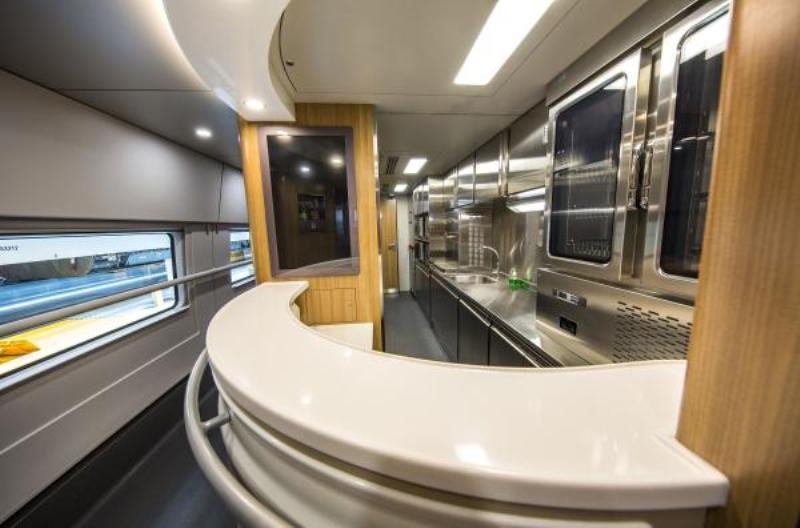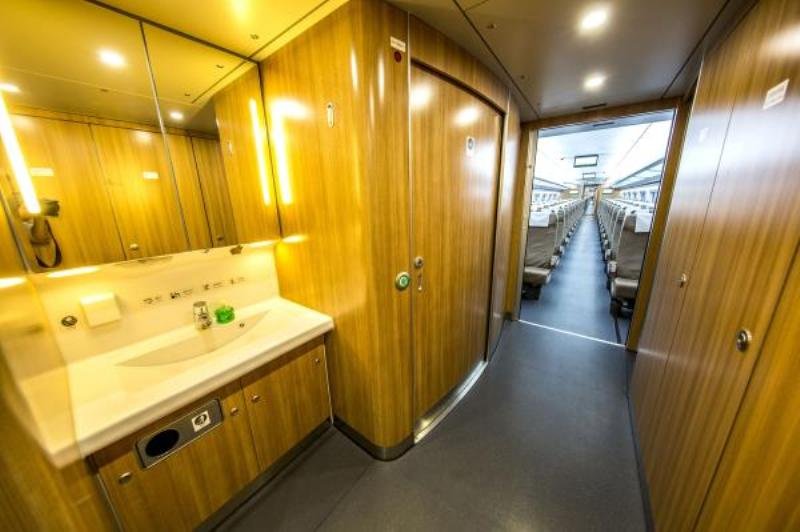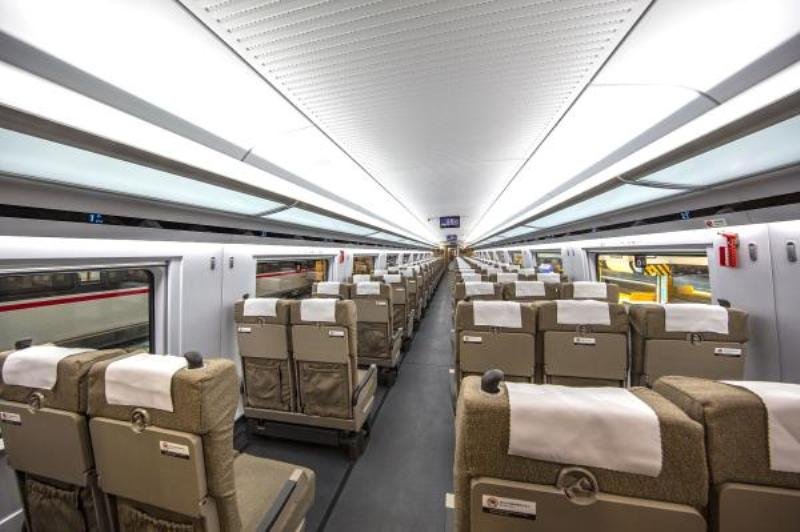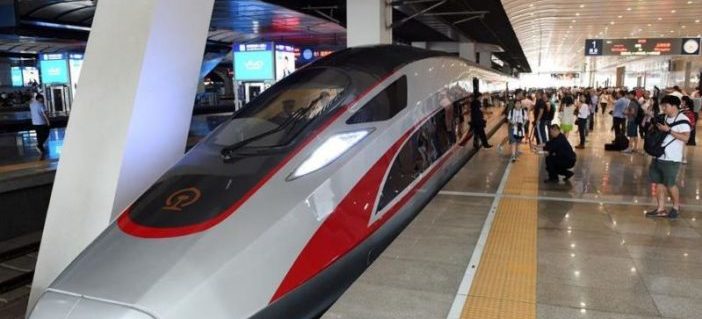After years of restricting train speeds, China’s high-speed railway may once again be offering passengers quick travel times by introducing a new train model that can conceivably make the trip from Beijing to Shanghai in just three hours.
Topping out at 400 kilometers per hour during test runs, the “Revival” (复兴 fùxīng) high-speed train made a trial run on the busy Beijing-Shanghai high-speed corridor on Tuesday (Jun 27).

Touted by the Chinese press as “completely engineered by domestic industries,” the Revival train could conceivably complete the 1,318-kilometer-long journey between Beijing and Shanghai in about three hours.
However, today’s first run took around five hours to complete, the same amount of time as the service provided by the existing high-speed train, the “Harmony.” Compared to its predecessor, the Revival is marketed as a technological upgrade, able to provide 10 additional years of service.
The two Wi-Fi-equipped trains are designated G123 and G124, and service is expected to be expanded to four trains come July 1.

There is no official word on how much tickets for the new train service will cost. Passengers for today’s trial run are reported to have paid the same fares as the Harmony line.
Although faster travel times appears to be a product of innovation, it remains that previous high-speed trains were limited by government orders instead of their own technology.
High-speed train speeds were reduced to under 300 kilometers per hour in the wake of the 2011 Wenzhou high-speed railway accident that killed 40 people. Former railways minister Liu Zhijun had planned for China’s trains to travel at around 380 kilometers per hour before he was ousted for corruption.

Chinese authorities claimed that the slower operating speeds were necessary. “The plans to run the trains at such high speeds posed a big safety risk,” said Beijing Transportation University professor Zhao Jian, while lower operating costs were cited elsewhere.
China’s return to pre-2011 service speeds come during a massive splurge on transportation infrastructure that will spend RMB 3.5 trillion (USD 503 billion) in order to expand its railway system by 2020. Meanwhile, the China Railway Corp is over RMB 4 trillion in debt, and its only profitable line happens to be the Beijing-Shanghai corridor.

Although not planned for commercial use, China is currently testing a ultra-fast bullet train that can achieve speeds of 600 kilometers per hour (or approximately 373 mph).
Photos: CNR, CE
This post first appeared on our sister website, the Beijinger. More stories from this author here.
Twitter: @Sinopath




